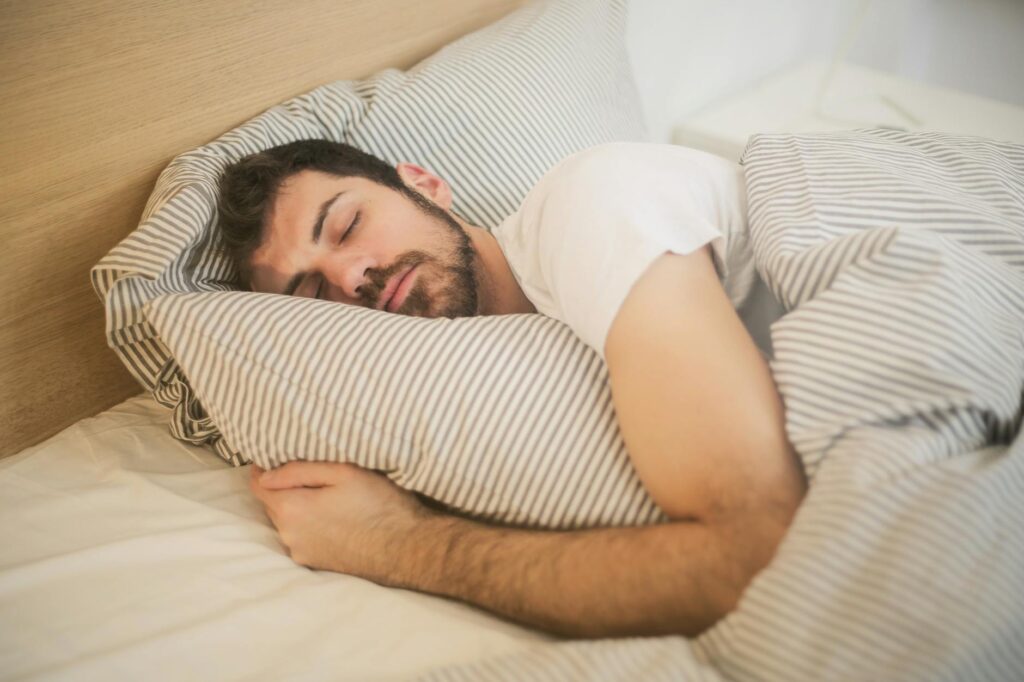Sleep Hygiene Basics
Establishing good sleep hygiene practices is crucial for maintaining optimal mental and physical health. Sleep hygiene refers to a set of behaviors and habits that promote healthy sleep patterns and improve the overall quality of sleep. By prioritizing sleep hygiene, individuals can enhance their productivity and enhance their overall quality of life.
Importance of Sleep Hygiene
The importance of sleep hygiene cannot be overstated. Healthy sleep is vital for both physical and mental well-being. It plays a significant role in supporting brain function, emotional regulation, and overall cognitive performance. Poor sleep hygiene can lead to difficulties falling asleep, staying asleep, and can result in daytime sleepiness and fatigue. By implementing good sleep hygiene practices, individuals can improve their sleep duration and quality, leading to a more refreshed and rejuvenated state.
Consistency in Sleep Schedule
One fundamental aspect of sleep hygiene is maintaining a consistent sleep schedule. Going to bed and waking up at the same times every day helps regulate the body’s internal clock, also known as the circadian rhythm. Consistency in sleep schedule reinforces the sleep-wake cycle, making it easier to fall asleep and wake up naturally. Additionally, following a regular sleep schedule can help reduce daytime sleepiness and enhance alertness throughout the day.
To establish a consistent sleep schedule, it is important to set a bedtime and wake-up time that allows for adequate sleep duration. Most adults require between 7-9 hours of sleep per night, while children and teenagers may need more. By prioritizing a regular sleep routine and sticking to it, individuals can train their bodies to anticipate sleep at a specific time, making it easier to fall asleep and wake up feeling refreshed.
By understanding the importance of sleep hygiene and maintaining a consistent sleep schedule, individuals can take significant steps towards improving their sleep quality and overall well-being. In the following sections, we will explore other aspects of sleep hygiene, including environmental factors and the impact of physical activity on sleep.
Environmental Factors
Creating an optimal sleep environment is an essential aspect of maintaining good sleep hygiene. Environmental factors, such as the impact of electronic devices and sleep environment setup, can greatly influence the quality of sleep.
Impact of Electronic Devices
Electronic devices, such as smartphones, tablets, and laptops, emit blue light that can interfere with our natural sleep-wake cycle. Blue light exposure in the evening can reduce melatonin levels, making it harder to fall asleep. Additionally, the alerting nature of blue light can hinder the ability to fall asleep. To promote better sleep, it is recommended to turn off electronic devices at least an hour before bedtime. This allows the body to naturally wind down and prepare for sleep.
Sleep Environment Setup
The way your sleep environment is set up plays a vital role in promoting a restful night’s sleep. Several factors, including temperature, mattress comfort, noise levels, and light exposure, can impact falling asleep and staying asleep. Here are some considerations for optimizing your sleep environment:
Temperature: Keep the room temperature cool, ideally between 60 to 67 degrees Fahrenheit (15 to 19 degrees Celsius). Adjust the temperature according to your personal comfort to promote better sleep.
Mattress and Pillows: Choose a mattress and pillows that provide adequate support and comfort for your body. Maintaining spinal alignment during sleep is crucial for reducing back pain and maintaining proper posture. Consider investing in a mattress and pillows that suit your specific sleep needs.
Noise Levels: Minimize noise disruptions that can interfere with sleep. If you live in a noisy environment, consider using earplugs or a white noise machine to mask unwanted sounds.
Light Exposure: Create a dark sleep environment by using blackout curtains or blinds to block out external light sources. Light exposure can affect the body’s natural sleep-wake cycle, so it’s important to reduce light exposure to promote better sleep.
By paying attention to these environmental factors, you can create an ideal sleep environment that promotes relaxation and quality sleep. A comfortable and conducive sleep environment is an important component of good sleep hygiene.
To learn more about sleep hygiene and its impact on mental health, continue reading our article on Sleep Hygiene and Mental Health.
Get your question answered now.
Physical Activity and Sleep
When it comes to promoting good sleep hygiene and maintaining optimal mental health, physical activity plays a crucial role. Regular exercise not only benefits your physical well-being but also has a positive impact on your sleep quality and mental well-being.
Benefits of Exercise
Engaging in regular physical activity, even as little as 30 minutes of aerobic exercise per day, can significantly improve sleep quality and overall health. According to Healthline, exercise has been found to regulate the sleep cycle, leading to better sleep patterns.
Exercise releases endorphins, which are known as “feel-good” hormones. These endorphins help reduce stress, anxiety, and depression, promoting a positive mood and mental well-being. Physical activity also helps in reducing the symptoms of mental health disorders, such as depression and anxiety.
Research, including a meta-analysis of randomized controlled trials, has shown significant medium-sized effects of exercise on various mental health outcomes, including composite mental health, depression, anxiety, stress, and positive psychosis symptoms. The greater the improvements in sleep quality, the greater the improvements in mental health.
Outdoor Exercise and Sleep
Exercising outdoors, particularly in natural light, can enhance the benefits of physical activity on regulating the sleep cycle. Exposure to natural light helps regulate the body’s internal clock, known as the circadian rhythm. This, in turn, promotes better sleep patterns and overall sleep quality.
Spending time outdoors during the day allows you to absorb natural light, which can help synchronize your body’s internal clock with the natural day-night cycle. This synchronization helps regulate the release of melatonin, the hormone responsible for promoting sleep.
By incorporating outdoor exercise into your routine, you can reap the benefits of both physical activity and exposure to natural light. Whether it’s going for a jog, cycling, or practicing yoga in a park, spending time outside can contribute to better sleep and improved mental well-being.
To optimize the benefits of exercise on sleep and mental health, it’s important to find activities that you enjoy and can sustain in the long term. Consider incorporating a variety of exercises into your routine, such as cardiovascular exercises, strength training, and flexibility exercises. Remember to listen to your body and consult a healthcare professional before starting any new exercise program.
By prioritizing physical activity in your daily life, you can positively influence your sleep hygiene and mental health. Exercise not only helps improve sleep quality but also contributes to a more positive mood, reduced stress, and enhanced overall well-being. So lace up your sneakers, step outside, and embrace the many benefits that exercise can bring to your sleep and mental health.
Sleep Deprivation Effects
When it comes to mental health, sleep deprivation can have significant effects on brain chemistry and contribute to the development or exacerbation of mental health disorders. Understanding these effects is crucial in recognizing the importance of maintaining good sleep hygiene for overall well-being.
Brain Chemistry Alterations
Sleep disruptions have been found to alter brain chemistry, leading to the development of mental health disorders. During sleep, especially rapid eye movement (REM) sleep, the brain processes emotional information and consolidates positive emotional content. However, a lack of sleep can interfere with this process, potentially influencing mood, emotional reactivity, and the development of mental health disorders.
Additionally, poor sleep can disrupt the balance of neurotransmitters in the brain, such as serotonin and dopamine, which play crucial roles in regulating mood and emotions. These alterations in brain chemistry can contribute to symptoms associated with mental health disorders.
Mental Health Disorders
The bidirectional relationship between sleep and mental health is well-documented. Poor sleep may induce or exacerbate symptoms of mental health disorders, while improving sleep can have a beneficial impact on mental health and can be a component of treating psychiatric conditions.
Several mental health conditions are intricately tied to sleep disturbances. Depression, seasonal affective disorder, anxiety disorders, bipolar disorder, schizophrenia, attention deficit hyperactivity disorder (ADHD), and autism spectrum disorder are some examples of conditions that can be influenced by sleep disruptions [3]. In fact, obstructive sleep apnea (OSA) has been associated with mental health, occurring more frequently in individuals with psychiatric conditions and heightening their risk of serious mental distress.
Recognizing the impact of sleep deprivation on mental health underscores the importance of prioritizing good sleep hygiene. By establishing consistent sleep schedules, creating a sleep-friendly environment, and addressing any underlying sleep disorders, individuals can take proactive steps towards maintaining both their physical and mental well-being.
To learn more about the connection between sleep hygiene and mental health, continue reading our article on the importance of mental health awareness.
Sleep Hygiene and Mental Health
The connection between sleep hygiene and mental health is undeniable. Poor sleep hygiene can significantly impact mental well-being, exacerbating symptoms of anxiety and depression, among other sleep disorders.
Anxiety Symptoms
Symptoms of anxiety can be intensified by poor sleep hygiene, leading to inconsistent sleep patterns, frequent nightmares, and excessive daytime sleepiness. When individuals with anxiety experience disrupted or insufficient sleep, it can further contribute to feelings of restlessness, irritability, and difficulty concentrating. Establishing good sleep hygiene practices can help alleviate these symptoms and promote better mental health.
Depression and Sleep Disorders
Depression and sleep disorders often go hand in hand, and poor sleep hygiene can worsen symptoms of depression. Disruptions in sleep, such as difficulty falling asleep, staying asleep, or experiencing non-restorative sleep, are commonly associated with depression. The study conducted in Tabuk city, Saudi Arabia, in 2022 found a significant association between poor sleep hygiene practices and depression among adults. Participants with depression were significantly higher among the poor hygiene group compared to those with good hygiene practices.
Moreover, sleep disruptions have been found to alter brain chemistry, contributing to the development of mental health disorders. When individuals consistently experience poor sleep quality due to inadequate sleep hygiene, it can further exacerbate symptoms of depression, anxiety, and other mental health diagnoses. Therefore, improving sleep hygiene practices is crucial for managing and improving mental health.
To promote better mental health, it is essential to prioritize adequate sleep and establish a consistent sleep routine. Practicing good sleep hygiene involves implementing habits such as maintaining a regular sleep schedule, creating a comfortable sleep environment, and avoiding electronic devices before bedtime. By making these adjustments, individuals can support their mental well-being and improve their overall quality of life.
If you are experiencing symptoms of anxiety, depression, or other mental health concerns, it is important to seek professional support. A mental health counselor can provide guidance and tailored strategies to address sleep hygiene and related mental health challenges. Additionally, intervention programs specifically designed for improving sleep hygiene can be beneficial in managing mental health disorders and promoting better sleep.
By recognizing the link between sleep hygiene and mental health, individuals can take proactive steps to improve their sleep habits and prioritize their mental well-being. Remember, small changes in sleep hygiene practices can have a significant impact on mental health outcomes.
Seeking Professional Support
When it comes to addressing the impact of sleep hygiene on mental health, seeking professional support can be beneficial for individuals experiencing symptoms of mental health conditions exacerbated by poor sleep hygiene. A mental health counselor can provide guidance and support to help manage these challenges.
Mental Health Counselor Recommendation
If you’re experiencing persistent sleep difficulties or mental health symptoms related to poor sleep hygiene, it is advisable to consult a licensed mental health counselor. These professionals have the expertise to assess your situation, identify potential underlying mental health concerns, and develop a personalized treatment plan. They can offer valuable insights, coping strategies, and therapeutic interventions to address both the sleep-related issues and the mental health symptoms you may be experiencing.
Mental health counselors employ various evidence-based approaches, such as cognitive-behavioral therapy (CBT) or dialectical behavior therapy (DBT), to help individuals manage their mental health and improve their sleep hygiene. They can assist you in developing healthier sleep routines, addressing any negative thoughts or emotions that may be interfering with sleep, and implementing effective relaxation techniques to promote better sleep quality.
Intervention Programs for Sleep Hygiene
To enhance sleep hygiene practices and overall mental well-being, intervention programs focused on improving sleep quality have been shown to be beneficial. These programs aim to raise awareness about the importance of sleep hygiene and provide individuals with practical strategies to enhance their sleep routines and habits.
By improving sleep hygiene practices, individuals can experience better sleep quality, which has been linked to improved mental health. In fact, research has shown that improving sleep quality leads to better mental health outcomes, including reduced symptoms of depression, anxiety, stress, and improved overall psychological well-being.
Intervention programs typically involve educational sessions, workshops, or online resources that provide information about the importance of sleep hygiene, tips for creating a sleep-friendly environment, relaxation techniques, and strategies for managing stress and anxiety that may interfere with sleep. These programs aim to empower individuals to make positive changes in their sleep habits and promote better mental health.
If you’re interested in participating in an intervention program for sleep hygiene, consider reaching out to mental health organizations, local healthcare providers, or online resources that offer evidence-based programs designed to improve sleep quality and overall mental well-being.
By seeking professional support and participating in intervention programs for sleep hygiene, individuals can gain the necessary tools and guidance to address the connection between sleep and mental health. Remember, prioritizing sleep hygiene is an essential step in promoting overall mental well-being.
Resources
- [1]: https://www.healthline.com/health/sleep-hygiene
- [2]: https://www.ncbi.nlm.nih.gov/pmc/articles/PMC8651630/
- [3]: https://www.sleepfoundation.org/mental-health
- [4]: https://www.ncbi.nlm.nih.gov/pmc/articles/PMC10105495/
- [5]: https://counseling.northwestern.edu/blog/sleep-hygiene-mental-health/
Did You Know? According to WHO, one out of every seven teens is struggling with some sort of mental illness.










